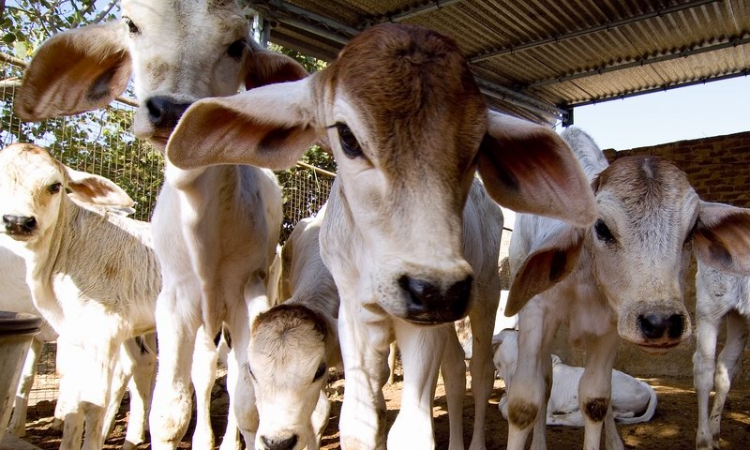- Home
- /
- High Courts
- /
- Punjab and Haryana High Court
- /
- Cows Hold Unique Status In India,...
Cows Hold Unique Status In India, Slaughter Can Have Severe Repercussions On Public Peace: Punjab & Haryana High Court
Aiman J. Chishti
25 Aug 2025 12:33 PM IST
The Punjab and Haryana High Court has observed that the cow holds a unique and special status in India, noting that its slaughter can have grave repercussions on public peace when it offends the deeply held beliefs of a significant population group.It was alleged that the petitioner, Aasif, was transporting two cows to Rajasthan for slaughtering, in violation of the Haryana Gauvansh...
The Punjab and Haryana High Court has observed that the cow holds a unique and special status in India, noting that its slaughter can have grave repercussions on public peace when it offends the deeply held beliefs of a significant population group.
It was alleged that the petitioner, Aasif, was transporting two cows to Rajasthan for slaughtering, in violation of the Haryana Gauvansh Sanrakshan and Gausamvardhan Act and the Prevention of Cruelty to Animals Act.
Justice Sandeep Moudgil while refusing to grant pre-arrest bail observed, “The present offence, apart from its legal implications, is laden with emotional and cultural undertones, given the unique status of the cow in Indian society. This Court cannot remain oblivious to the fact that in a pluralistic society like ours, certain acts, while otherwise private, can have severe repercussions on public peace when they offend the deeply held beliefs of a significant population group.”
Reliance was placed on State of Gujarat v. Mirzapur Moti Kureshi Kassab Jamat, (2005) 8 SCC 534, wherein the Supreme Court upheld the constitutional validity of cow slaughter prohibitory laws and recognised the constitutional directive under Article 48 of the Constitution of India as reflecting the moral and economic ethos of our society.
The cow, the Court said, is "not only a pious animal but also an integral part of India's agrarian economy."
Our Constitution does not merely protect rights in abstraction; it seeks to build a just, compassionate, and cohesive society. Article 51A(g) Constitution of India enjoins every citizen to show compassion to all living creatures. It is in this context that the alleged act of cow slaughter committed repeatedly, deliberately, and provocatively strikes at the core of constitutional morality and social order, it added.
The Court further noted that, the petitioner is not a first time offender. He is alleged to have previously been involved in three other FIRs pertaining to similar offences. “In those cases, the petitioner was granted the benefit of bail as a gesture of judicial trust, which appears to have been misused, rather than respected.”
The judge said that, protection from arrest under Section 482 of Bharatiya Nagarik Suraksha Sanhita (BNSS) is not an open invitation for habitual offenders to escape the process of law.
The Court also clarified that it is conscious of the need to safeguard individual liberty,But where such liberty is demonstrably misused, and where the petitioner's conduct is indicative of recidivism, the law must respond with firmness.
The right to bail is not to be confused with the right to impunity, it added.
“Anticipatory bail is a discretionary relief, intended to protect innocent individuals from motivated or arbitrary arrest, not to provide sanctuary to those who repeatedly violate the law with impunity,” added the Court.
Observing that, possibility of the petitioner indulging in similar unlawful activities in the future, or tampering with the investigation, cannot be ruled out, the Court denied relief to the accused.
Ms. Rosi, Advocate for the petitioner.
Title: Asif v. State of Haryana



